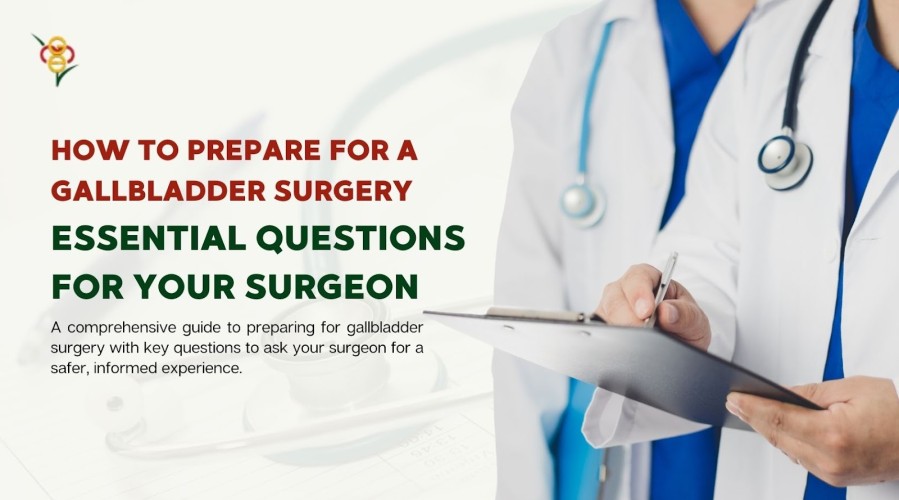Learn what gallstones are, their common symptoms, causes, and treatment options. Discover when to seek medical care and how to manage gallstone complications effectively.
How to Prepare for a Gallbladder Surgery: Essential Questions for Your Surgeon

How to Prepare for a Gallbladder Surgery: Essential Questions for Your Surgeon
Preparing for gallbladder surgery can be a daunting experience, but asking the right questions can make it much easier. Understanding the procedure and what to expect can help alleviate anxiety and ensure a smoother recovery. Here’s a guide to the essential questions you should ask your surgeon before undergoing gallbladder surgery.
What Are the Reasons for Gallbladder Surgery?
Understanding why you need gallbladder surgery is crucial. Your surgeon should explain the specific reasons for your procedure. Common causes include gallstones, inflammation, or infection. Knowing the exact reason can help you understand the urgency and necessity of the surgery.
What Are the Risks and Benefits of Gallbladder Surgery?
Every surgery comes with risks and benefits. Ask your surgeon to outline these clearly. Understanding potential complications and the positive outcomes can help you make an informed decision. Benefits often include pain relief and preventing future complications, while risks might include infection or adverse reactions to anesthesia.
How Should I Prepare for Gallbladder Surgery?
Proper preparation is key to a successful surgery. Your surgeon should provide detailed instructions on pre-surgery preparations. This might include fasting, stopping certain medications, or undergoing specific tests. Following these guidelines can help reduce the risk of complications.
What Happens During the Surgery?
Knowing what to expect during the procedure can ease anxiety. Ask your surgeon to explain the steps involved in the surgery. Typically, gallbladder surgery is minimally invasive and involves small incisions. Understanding the process can help you feel more at ease on the day of the surgery.
What Is the Recovery Process Like?
Recovery is a crucial part of the surgery process. Ask about the expected recovery time and what you can do to aid your healing. Your surgeon should provide guidelines on activities to avoid, signs of complications, and when you can return to normal activities. Knowing what to expect can help you prepare for a smooth recovery.
Will I Need Follow-Up Appointments?
Follow-up care is important to ensure your recovery is on track. Ask about the schedule for follow-up appointments and what they will involve. These appointments help your surgeon monitor your progress and address any concerns you might have post-surgery.
Are There Any Dietary Restrictions After Surgery?
Diet plays a significant role in recovery. Inquire about any dietary changes you need to make after the surgery. Your surgeon might recommend avoiding certain foods that can cause discomfort or slow down your recovery. Knowing these dietary restrictions can help you plan your meals and avoid complications.
What Are the Signs of Complications?
Being aware of potential complications can help you seek timely medical attention. Ask your surgeon to explain the signs of complications such as infection, excessive pain, or digestive issues. Knowing what to look out for can help you address problems before they become serious.
How Will This Surgery Affect My Daily Life?
Understanding the impact of the surgery on your daily life can help you prepare mentally and physically. Ask your surgeon about any long-term changes or limitations you might experience. Knowing this can help you adjust your lifestyle and set realistic expectations for your recovery.
Schedule an Appointment with GEM Hospital
If you’re considering gallbladder surgery, it's essential to consult with experienced surgeons who can provide the best care. Schedule an appointment with GEM Hospital to discuss your concerns and get professional advice tailored to your situation. Our team is dedicated to ensuring your surgery and recovery are as smooth as possible.
Blogs & Article
Learn about bloating and gas problems, including common causes, symptoms, and effective solutions to improve digestion, reduce discomfort, and maintain gut health.
Learn how unverified Ayurveda treatments may cause liver damage, understand the risks, symptoms, and why medical guidance is essential for safe care.


